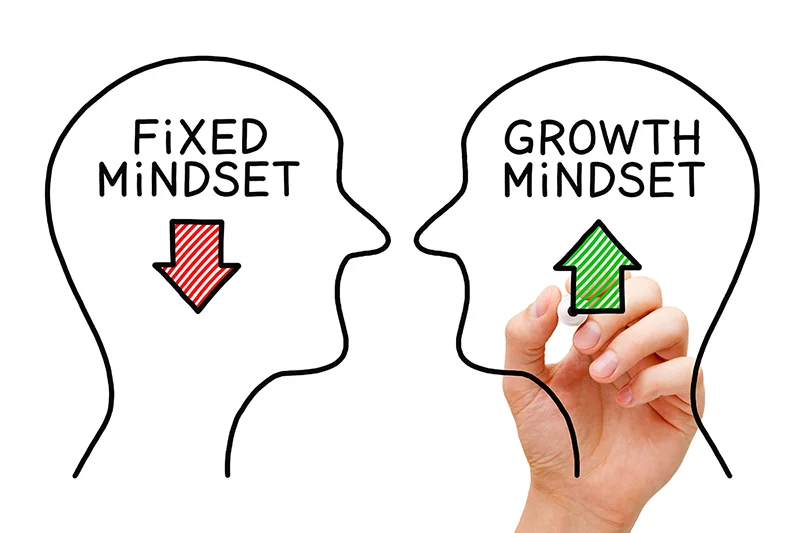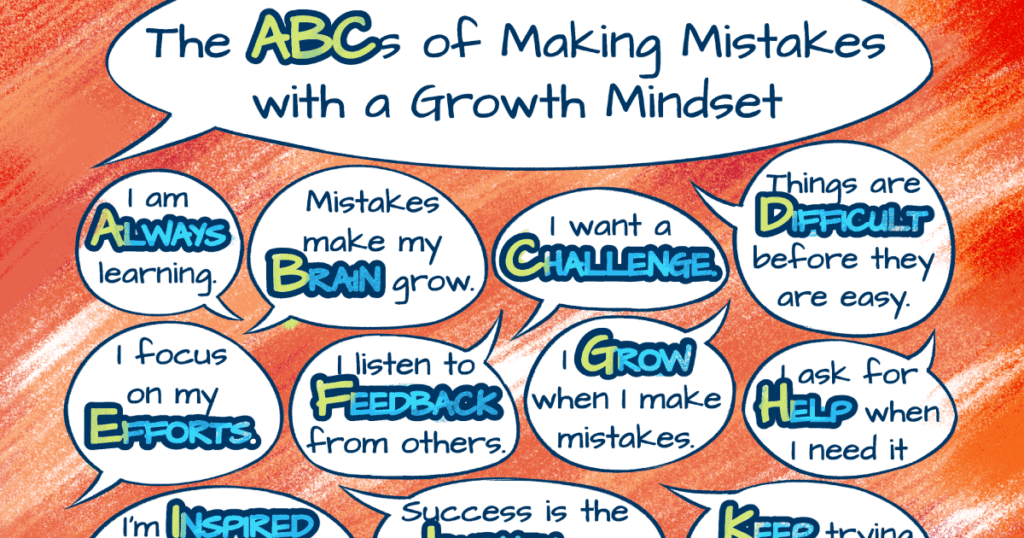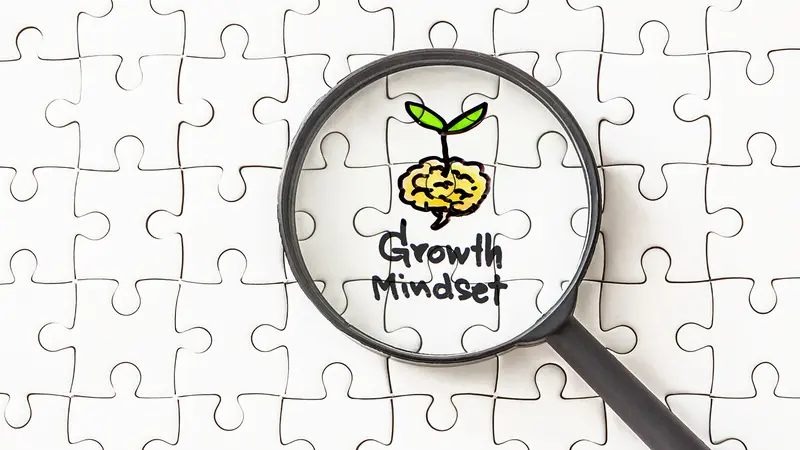A growth mindset is a powerful mental framework that can drive personal and professional development. It’s the belief that abilities and intelligence can be developed through dedication, learning, and resilience. In contrast, a fixed mindset assumes that abilities are innate and unchangeable, leading to a fear of failure and a reluctance to embrace challenges. Cultivating a growth mindset can lead to increased motivation, improved problem-solving skills, and greater overall success. In this comprehensive guide, we’ll explore various tips and strategies to help you develop and nurture a growth mindset.
Understanding the Growth Mindset
Before delving into practical tips, it’s essential to grasp the concept of a growth mindset fully. Developed by psychologist Carol Dweck, the idea centers on the belief that our abilities and intelligence can be developed over time. In contrast, a fixed mindset assumes that our traits and capabilities are static and unchangeable.
- Recognize Fixed vs. Growth Mindset: Start by distinguishing between a fixed mindset and a growth mindset. Fixed mindset thinking includes beliefs like “I’m not good at this, and I never will be” or “I’m either naturally talented or not at all.” In contrast, a growth mindset believes that abilities can be improved through effort, learning, and persistence.
- Embrace Challenges: Cultivating a growth mindset begins with embracing challenges. Instead of avoiding difficulties, welcome them as opportunities for growth. Challenges push you out of your comfort zone, providing a chance to learn and improve.
- View Effort as a Path to Mastery: In a growth mindset, effort is seen as the path to mastery. Understand that the more effort you put into learning and practice, the better you become. The journey itself becomes rewarding, irrespective of the immediate results.

Practical Tips for Cultivating a Growth Mindset
Now that we’ve established the foundational understanding, let’s explore practical strategies to foster and grow a growth mindset:
1. Embrace the Power of “Yet”
When faced with challenges or setbacks, add the word “yet” to your self-talk. For example, instead of saying, “I can’t do this,” say, “I can’t do this yet.” This small shift in language implies that your current limitations are temporary, and you can improve with time and effort.
2. Learn from Failures and Mistakes
Failure is a natural part of the learning process. Instead of fearing it, embrace it as a valuable teacher. Analyze your failures and mistakes to understand what went wrong and what you can do differently in the future. Thomas Edison, after many failed attempts to invent the light bulb, famously said, “I have not failed. I’ve just found 10,000 ways that won’t work.”
3. Set Growth-Oriented Goals
When setting goals, focus on growth and improvement rather than just achieving a specific outcome. Break down your goals into smaller, more manageable steps. This approach allows you to measure your progress and experience a sense of accomplishment as you move closer to your goals.
4. Embrace Challenges
Challenges are opportunities for growth. Instead of avoiding them, seek out challenges that push your boundaries and expand your skills. Whether it’s tackling a new project at work or taking up a new hobby, confronting challenges head-on will help you develop resilience and new capabilities.
5. Cultivate a Love for Learning
A growth mindset thrives on a passion for learning. Develop a curiosity about the world around you. Read books, take courses, seek out new experiences, and continuously expand your knowledge. The more you learn, the more you’ll realize how much there is still to discover.
6. Effort Counts Twice
Remember that in a growth mindset, effort is highly regarded. It’s not just about the outcome; the effort you put in is also an achievement. Recognize and celebrate your hard work, dedication, and perseverance, even if the immediate results are not what you hoped for.
7. Seek Feedback and Criticism
Constructive feedback is a valuable tool for growth. Instead of shying away from criticism, actively seek it out from mentors, colleagues, or friends. Feedback provides insights into your strengths and areas for improvement, helping you grow and develop.
8. Model Resilience
Resilience is a key attribute of a growth mindset. When faced with adversity, setbacks, or criticism, model resilience by maintaining a positive attitude, learning from the experience, and continuing to work toward your goals. Your ability to bounce back from challenges will inspire others to do the same.
9. Avoid Comparisons
Comparing yourself to others can lead to a fixed mindset. Instead, focus on your progress and growth journey. Recognize that everyone has their unique path, and comparing yourself to others only hinders your own development.
10. Embrace Change
Change is a constant in life, and a growth mindset welcomes it. Be open to new experiences, ideas, and ways of doing things. Adaptability and a willingness to embrace change are key traits of individuals with a growth mindset.
11. Practice Self-Compassion
Developing a growth mindset includes being kind to yourself. Understand that you’re not perfect, and you will encounter challenges and make mistakes. Practice self-compassion by treating yourself with the same kindness and understanding that you would offer to a friend.
12. Use Visualization and Positive Affirmations
Visualization can be a powerful tool for growth. Imagine yourself achieving your goals and overcoming challenges. Pair this with positive affirmations, such as “I am capable of learning and growing,” to reinforce your belief in your potential.

Developing a Growth Mindset in Specific Areas
A growth mindset can be applied to various aspects of life, from career development to personal relationships. Here are some tips for cultivating a growth mindset in specific areas:
In the Workplace:
- Take on New Responsibilities: Volunteer for projects or tasks that stretch your skills and knowledge.
- Seek Feedback: Request feedback from supervisors, peers, and subordinates to continuously improve your performance.
- Learn from Failures: Analyze past failures or setbacks at work and use them as opportunities for growth.
- Develop New Skills: Invest in professional development and acquire new skills relevant to your field.
- Mentorship: Seek mentorship from experienced colleagues who can provide guidance and support your growth.

In Education:
- Approach Learning with Curiosity: Develop a genuine interest in your studies and explore topics that intrigue you.
- Study Strategies: Experiment with different study techniques to find what works best for you.
- Don’t Fear Challenges: Welcome challenging subjects or courses as opportunities to expand your knowledge.
- Persist in the Face of Difficulty: When you encounter tough academic challenges, persevere rather than giving up.
- Collaborate and Seek Help: Don’t hesitate to collaborate with classmates or seek assistance from instructors when needed.

In Relationships:
- Communication Skills: Work on improving your communication skills to build healthier relationships.
- Learn from Relationship Challenges: Use conflicts or disagreements as opportunities for personal growth and better understanding.
- Empathy: Develop empathy by trying to see situations from others’ perspectives and being open to compromise.
- Self-Reflection: Regularly reflect on your interactions and relationships to identify areas where you can improve.
In Personal Growth:
- Set Personal Goals: Establish personal development goals that align with your values and aspirations.
- **Practice Mindfulness**: Cultivate mindfulness to become more aware of your thoughts and reactions.
- Journaling: Keep a journal to track your progress, reflect on experiences, and set intentions for growth.
- Self-Improvement Resources: Read self-help books, listen to podcasts, or attend workshops that promote personal growth.
- Seek Guidance: Consider working with a coach or therapist to support your personal development journey.
Challenges and Obstacles in Developing a Growth Mindset
While cultivating a growth mindset is a valuable pursuit, it’s not without challenges. Recognizing and addressing these obstacles is essential for sustained growth:
Fear of Failure:
Fear of failure can hinder your willingness to take risks and embrace challenges. To overcome this fear:
- Reframe failure as a learning opportunity.
- Start with small, manageable challenges to build confidence.
- Celebrate your efforts, not just your successes.
Negative Self-Talk:
Negative self-talk can reinforce a fixed mindset. To counteract it:
- Practice self-awareness to identify negative thoughts.
- Replace negative thoughts with positive affirmations or growth-oriented statements.
- Challenge and reframe limiting beliefs about your abilities.
Impatience:
Developing a growth mindset takes time and patience. To avoid becoming discouraged:
- Set realistic expectations for your growth journey.
- Recognize that progress may be gradual and non-linear.
- Stay committed to your efforts, even when immediate results are not evident.
External Pressure:
External pressures, such as societal expectations or the desire for quick results, can be challenging to navigate. To maintain a growth mindset:
- Focus on your intrinsic motivations and personal goals.
- Don’t let external expectations dictate your sense of worth or success.
- Remind yourself that growth is a lifelong journey.
Opportunities and Benefits of a Growth Mindset
Cultivating a growth mindset offers numerous benefits and opportunities:
Lifelong Learning:
A growth mindset encourages a love for learning and personal development. It opens doors to acquiring new skills, knowledge, and experiences throughout your life.
Resilience:
Individuals with a growth mindset tend to be more resilient in the face of adversity and setbacks. They view challenges as opportunities to learn and grow, which helps them bounce back from difficult situations.
Increased Motivation:
Believing in your ability to improve and grow can boost your motivation to pursue challenging goals and overcome obstacles.
Enhanced Problem-Solving:
A growth mindset fosters creative thinking and problem-solving skills. When confronted with complex issues, you’re more likely to explore innovative solutions.
Stronger Relationships:
A growth mindset can improve relationships by promoting empathy, communication, and a willingness to learn from conflicts or misunderstandings.
Career Advancement:
In the workplace, a growth mindset can lead to career advancement as you embrace new challenges, seek opportunities for improvement, and adapt to changes in your industry.
Improved Well-Being:
A growth mindset is associated with increased well-being and a more positive outlook on life. It can help reduce stress and anxiety while promoting a sense of purpose and fulfillment.
Cultivating a growth mindset is a lifelong journey that can lead to personal and professional growth, resilience, and a deeper appreciation for the learning process. By embracing challenges, learning from failures, and nurturing a passion for learning, you can unlock your potential and achieve greater success in various areas of your life. Remember that developing a growth mindset is not an overnight transformation but a gradual shift in perspective that can yield profound and lasting benefits. Stay committed to your growth journey, and you’ll discover the limitless potential that lies within you.


























